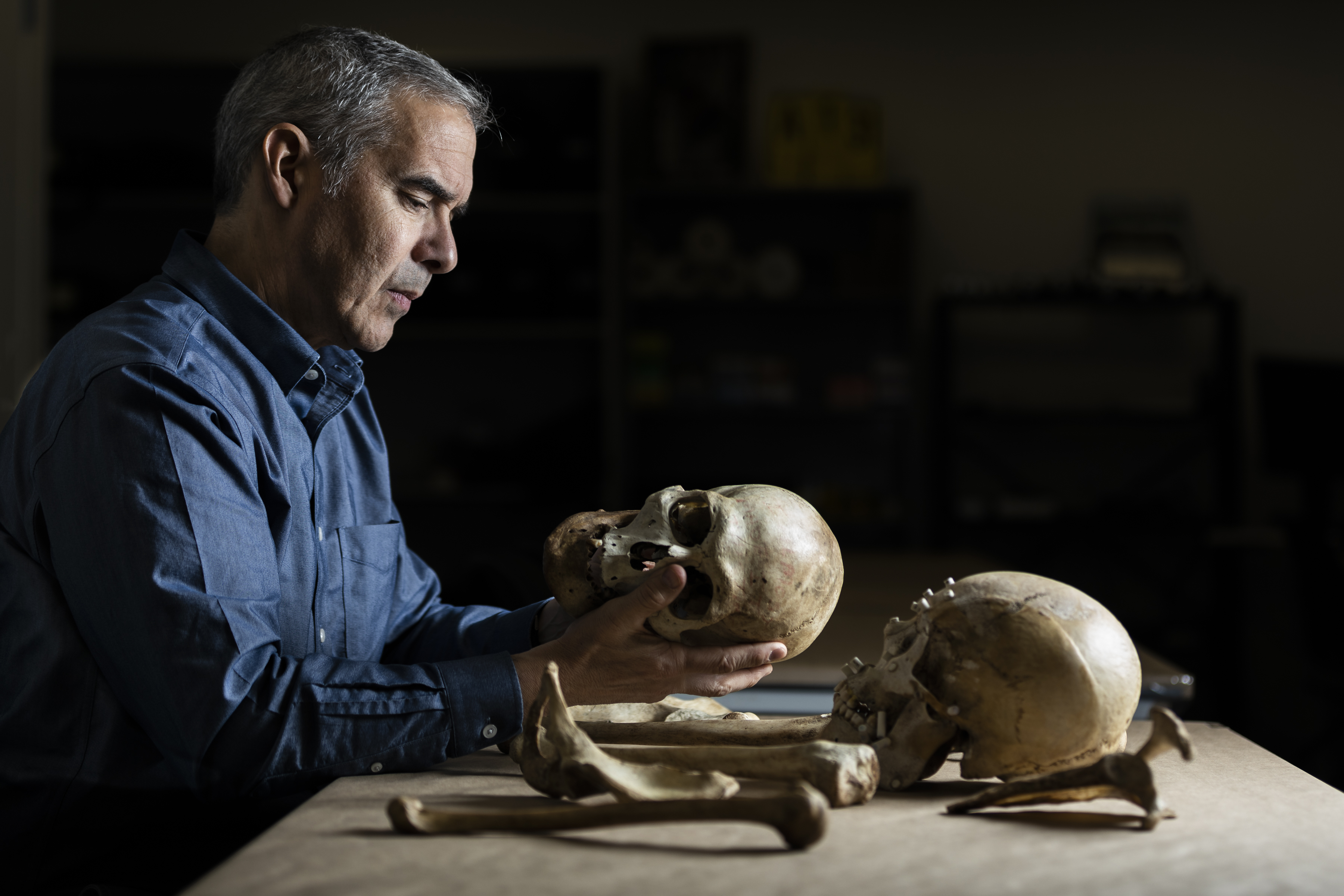
Anthony Falsetti brings considerable field experience to the Forensic Science Program at Mason, such as confirming the identities of Alexei and Anastasia, the missing Romanov children, and working with the International Commission on Missing Persons in Bosnia. Photo by Lathan Goumas.
When professors come to George Mason University, they bring their expertise and their experiences in the field into the classroom.
For forensic anthropologist Anthony Falsetti, that field experience includes major cases in Russia and Bosnia.
"I always use my experiences; I think it makes it more interesting to the students because then they learn that it's a lot harder than you think," said Anthony Falsetti, a recent addition to the College of Science’s Forensic Science Program faculty.
"[Forensic anthropology is] the application of all the wonderful things we know about human biology, applied to an individual unidentified case or . . . if you know who it is, what had happened to them,” Falsetti said.
Mary Ellen O’Toole, director of the Forensic Science Program at Mason, said she was ecstatic that Falsetti decided to join her team.
"He brings the two things that I really feel are important: academic expertise and the operational expertise,” said O’Toole. “Then there is a third one—he's a visionary."
When he arrived at the University of Florida in 1996, Falsetti worked with Bill Maples, who had been part of a team that examined nine skeletons that belonged to members of the last Russian imperial family, who were executed by Soviet leadership. Five of the bodies had been identified as Russian Tsar Nicholas Romanov, his wife and three of their five children.
When Maples passed away, Falsetti inherited the first part of the Romanov case. There were still two members of the family missing, Alexei and Anastasia, the youngest children.
Falsetti made his first trip to Russia in 1997 to help develop a research plan to find the two remaining bodies but then heard nothing for several years. Ten years later, in 2007, Falsetti got an email containing pictures of two sets of skeletons that were found in Russia—a young boy and girl. On his second trip to Russia, he used DNA to confirm that the bodies were Alexei and Anastasia, the missing Romanov children.
On his third trip, he was featured in the National Geographic documentary “Finding Anastasia.”
"It was a really great opportunity to do, essentially, what forensic anthropologists do—just do it in another country on really interesting remains," said Falsetti.
This wasn’t his first time practicing forensic anthropology on an international scale. Falsetti also worked with the International Commission on Missing Persons in Bosnia, where he helped identify individuals from the Bosnian Conflict, a four-year war that left more than 44,000 dead and unidentified.
"The Declaration of Human Rights states that every human being has the right to know the fate of their loved ones and the right to your own name,” said Falsetti. “That has been applied to many postconflicts. Bosnia was an example of that."
Falsetti is looking forward to continuing his work at Mason. One of the things he likes best about Mason’s program is the practical field experience students get.
"This program is very hands-on, whether it’s in the laboratory ... or if we're doing the actual work, the CSI [crime scene investigation] part of forensic science,” said Falsetti. “You have to understand both, because if all you do is sit in a lab, you don't understand the nature of the evidence.”
